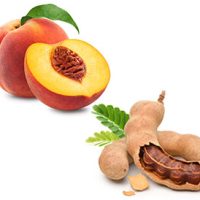The Natural & Organics Show (NOPEX) will be taking centre stage once more at…

From Kochi to Erode, India
Food in India is regionally specific and diverse: the eating habits of its huge population are influenced by climate, cultural history and religious practices. Approximately one-third of India’s population is vegetarian and consequently a much wider selection of vegetables is used than in many other cuisines. India is the world’s second largest producer of vegetables after China, producing a massive 170 million metric tonnes of vegetables in 2014/15 alone.
The Indian food processing industry has made huge advances in recent years on utilising the easy availability of raw materials, reflecting changing lifestyles and fiscal policies which combine to give a considerable push to this industry’s growth. The industry serves as a vital link between the agricultural and manufacturing sectors of the economy. A positive sign of exponential growth is the emergence of ‘Mega Food Parks’ across the country: each one will create employment for approximately 6,000 people and benefit 30,000 farmers.
Despite different eating patterns across the north, south, east and west, there are elements common countrywide. Indian cuisine uses a greater variety of pulses than that of any other country. Indian food’s defining characteristic overall is the use of a vast array of aromatic spices in all food preparations. Aside from nutmeg, such spices are usually dry roasted to release their essential oils before being ground into individual spice mixes. Each spice not only brings its own unique flavour to Indian cuisine, but also provides a host of universally acknowledged nutritional and medical properties for general wellbeing. Among the most commonly, used (and locally grown) spices in Indian food are cinnamon, cloves, ginger, pepper, turmeric, coriander, paprika, saffron and tamarind.
Many KLBD certified companies produce spices and other food ingredient products in India. One such is Universal Oleoresins, manufacturers and exporters of fine quality spice oils, oleoresins, natural colours and the ‘Spice Drop’ range of instant spice extracts. The company was founded in 1981 and is located in Kochi, the commercial capital of Kerala, which is known as the Spice Coast of India. Another KLBD certified company is Tadimety Aromatics, a producer of aroma chemicals, flavours, fragrances and aromatics, based in Bangalore.
Also located in Kerala is Geschmack Food Ingredient Solutions Limited, a leading manufacturer and supplier of essential oils, oleoresins, natural food colours and herbal extracts. Geschmack purchases raw materials directly from farmers to ensure rigorous quality control and their products carry the KLBD logo as a further assurance of quality. State of the art processing facilities, coupled with technical expertise and renowned customer service have led Geschmack to being a preferred supplier to many multinational food and flavour companies worldwide.
A further success story among Indian food processing companies is Western India Cashew, led by President, Hari Nair. A leading international supplier of cashew nuts and KLBD certified, the company has been consistently recognised for its product innovation and specifically the development of flexi-pouch packaging for bulk cashews. The company owns two-nut processing facilities in Kerala State and is a preferred supplier of cashew and almond ingredients to leading chocolate, cereal, cereal-bar, ice cream and cookie companies in India, Asia and America. In addition to manufacturing its own products, Western Cashew also has extensive private label business.
Another highly successful Indian food manufacturer is The Brahmins Group, which has been producing authentic vegetarian products for over three decades. It boasts an extensive range of nutritious breakfast cereals, spice mixes, beverages and desserts amongst its innovative products. Stringent quality checks are undertaken at every stage, from sourcing of raw materials to production and packaging, and KLBD certification (of some products) is a further reflection of the emphasis placed on the highest standards of quality control by the company, which is managed by Executive Director, Sreenath Vishnu.
SKM Egg Products, the largest egg processing plant in Asia, is also KLBD certified and produces 6,500 tonnes of egg powder annually from its manufacturing base in Erode, Tamil Nadu. The slogan of the company is ‘thinking out the shell’. Egg powders are custom blended with other ingredients and are used for biscuits, cakes, mayonnaise among many other applications. The company has also been active in the retail sector developing innovative products like their gable top retail pack for egg white liquid, an egg albumen drink and their egg white cube. Over the last ten years SKM has invested in liquid egg products and installed specialist laboratory equipment (LCMS / MS) for monitoring the residues of antibiotics and pesticides. Further afield it has opened a branch in Russia where they see significant potential.
Unsurprisingly, the India Brand Equity Foundation has predicted a 25% rise in India’s fruit and vegetable processing sector by 2025 and comments generally that India’s continuous increase in raw material production has helped to supply cheaper products to both domestic manufacturers and for export. The food industry’s importance to the national economy is demonstrated by the immense employment opportunities it offers and the export revenue it earns.
The changing profile of India’s population is reflected in the modified tastes and food preferences of domestic consumers based on rising incomes, increasing urbanisation and the emergence of nuclear families. A preference for healthier snacks is also discernible and manufacturers, which can prove that their products are of high quality and that are wholesome will further, propel demand in this sector.




